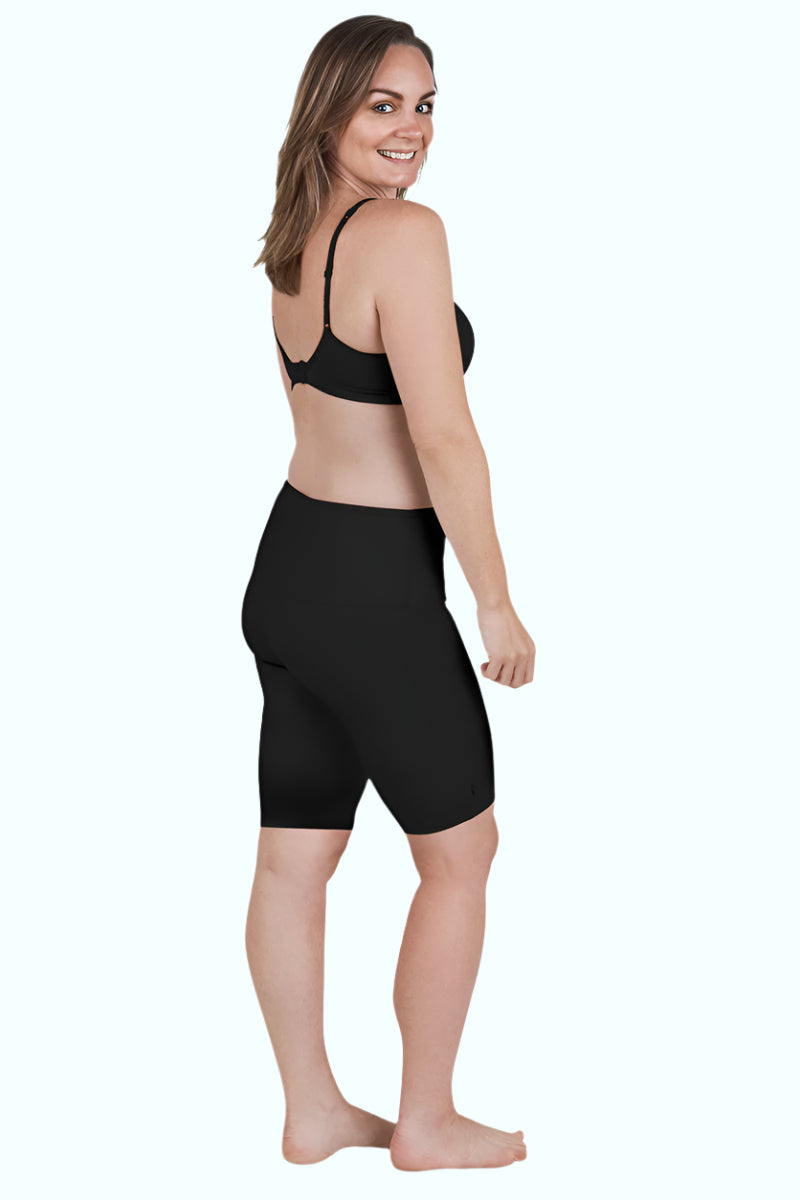The Essential Role of Pelvic Floor Physiotherapy During and After Pregnancy
Pregnancy is a transformative period in a woman’s life, bringing about significant physical and emotional changes. Among the most crucial yet often overlooked aspects of this journey is the health of the pelvic floor—a group of muscles that play a vital role in supporting the bladder, bowel, and uterus. Pelvic floor physiotherapy has emerged as a key intervention to address the challenges associated with pelvic floor dysfunction (PFD) during pregnancy and postpartum. This blog will explore the importance of pelvic floor physiotherapy and how SRC compression garments can support women during and after pregnancy, enhancing their pelvic health and overall well-being.
Key Takeaways for Pregnant and Postpartum Women:
Start Early: Engage in pelvic floor physiotherapy early in pregnancy to strengthen your pelvic floor muscles and reduce the risk of PFD.
Use Supportive Garments: Consider wearing SRC Pregnancy, SRC Recovery and SRC Restore compression garments during appropriate stages to support your pelvic floor and enhance the benefits of physiotherapy.
Seek Professional Help: If you notice symptoms of PFD, seeking personalised care from a pelvic floor physiotherapist is crucial. After recovering from either a vaginal or C-section delivery, if symptoms like stress urinary incontinence (SUI) or pelvic organ prolapse (POP) persist, consider using specialised compression garments such as SRC Restore. These garments can be effective both in conjunction with physiotherapy and on their own.
For those unable to access a physiotherapist, many free online resources, including videos, can guide you, along with SRC compression garments tailored for each stage of a woman’s life.
Understanding Pelvic Floor Dysfunction During Pregnancy
PFD refers to a range of symptoms caused by weakened or damaged pelvic floor muscles. These symptoms can include urinary incontinence, bowel issues, sexual discomfort, and pelvic organ prolapse (POP), where the pelvic organs descend due to the lack of support. PFD is particularly common during pregnancy, as the growing baby exerts pressure on the pelvic floor, increasing the risk of muscle strain and injury.
A study by Baruch et al. (2023) highlighted that 60% of pregnant women experience at least one type of PFD. The most common issues include bladder control problems, bowel difficulties, and sexual discomfort, with symptoms often worsening in the third trimester. Early detection and intervention are crucial for managing these symptoms and preventing long-term complications.
The Impact of Levator Muscle Trauma on Pelvic Floor Function
A study by Guzmán Rojas et al. (2014) examined the impact of trauma on pelvic floor muscle (PFM) function in first-time mothers. Of the 433 women analysed, 15% experienced major trauma (levator avulsion) linked to a significant decline in muscle function, while 21% had minor trauma that also affected muscle strength.
Levator ani muscle is the largest component of the pelvic floor.

Reference: www.physio-pedia.com/Levator_Ani_Muscle
The Critical Importance of Pelvic Floor Physiotherapy
Pelvic floor physiotherapy is a specialised branch of physical therapy focused on the assessment, treatment, and rehabilitation of pelvic floor muscles. It is essential for both preventing and managing PFD during pregnancy and postpartum. A pelvic floor physiotherapist can provide individualised exercises and techniques to strengthen the pelvic floor, improve muscle coordination, and help to alleviate symptoms.
While pelvic floor physiotherapy is the cornerstone of managing PFD, supportive garments like SRC Pregnancy, SRC Recovery and SRC Restore that come in shorts and leggings as well a large variety of sizes, can enhance the effectiveness of physiotherapy by providing additional benefits or working as a standalone treatment when physiotherapy is not available.
Benefits During Pregnancy:
1. Prevention of PFD:
Engaging in regular pelvic floor physiotherapy during pregnancy helps preserve muscle strength and elasticity, thereby lowering the risk of PFD. Complementing this, SRC Pregnancy Compression Garments are designed with a unique triple-layer gusset panel that provides additional support to the pelvic floor muscles, aiding in the maintenance of their strength throughout pregnancy.
2. Symptom Management During Pregnancy
For women experiencing PFD symptoms, pelvic floor physiotherapy provides targeted exercises and techniques that help alleviate discomfort and improve muscle function. The SRC Pregnancy range further supports this by reducing common pregnancy-related discomforts, such as pelvic girdle pain and lower back pain, allowing women to stay active and comfortable. Additionally, wearing SRC Pregnancy compression shorts and leggings can enhance the benefits of physiotherapy, providing comprehensive support for overall pelvic and pelvic floor health during pregnancy.
3. Preparation for Labor:
A study by Du et al. (2015) found that doing pelvic floor muscle exercises during pregnancy could help shorten the first and second stages of labour by about 28 minutes and 10 minutes respectively on average for first-time moms. These exercises don't increase the risk of needing an episiotomy, using instruments during delivery, or experiencing tears.
Benefits Postpartum:
- Recovery and Rehabilitation: After childbirth, whether via vaginal delivery or C-section, pelvic floor physiotherapy is essential for restoring muscle function, reducing pain, and addressing any injuries like levator avulsion or perineal tears. SRC Recovery Shorts and Leggings provide additional support to the pelvis, pelvic floor and abdominal muscles, which is particularly beneficial for women recovering postpartum. These garments help minimize discomfort and promote healing, making them an effective complement to physiotherapy during the postpartum recovery process.
- Prevention of Long-Term Complications: Regular physiotherapy can help prevent long-term issues like chronic incontinence or POP, which may otherwise require surgical intervention. Consistently wearing SRC Recovery garments during the postpartum period supports pelvic health by reducing the recurrence of PFD symptoms and promoting long-term muscle strength and stability. Additionally, these garments aid in healing abdominal muscle separation (diastasis recti), helping to restore core strength and improve overall abdominal and pelvic recovery after childbirth
The Growing Need for Awareness and Education
Despite the benefits of pelvic floor physiotherapy and supportive garments, many women remain unaware of their importance. A study by Wu et al. (2013) projected a significant increase in surgeries for SUI and POP in the coming decades. This trend underscores the need for greater awareness and education about preventive measures like pelvic floor physiotherapy and the use of specialised compression garments during and after pregnancy.
Conclusion
Pelvic floor physiotherapy, combined with SRC compression garments, play a crucial role in ensuring a healthy pregnancy and postpartum recovery. By focusing on pelvic and pelvic floor health through regular physiotherapy and the use of SRC garments, women can significantly lower the risk of pelvic floor dysfunction, low back pain, pelvic girdle pain, and vulvar varicosities. This proactive approach enhances quality of life and facilitates a smoother transition into motherhood. As awareness grows, more women can benefit from early intervention, leading to healthier, happier outcomes for both mothers and their families.


















